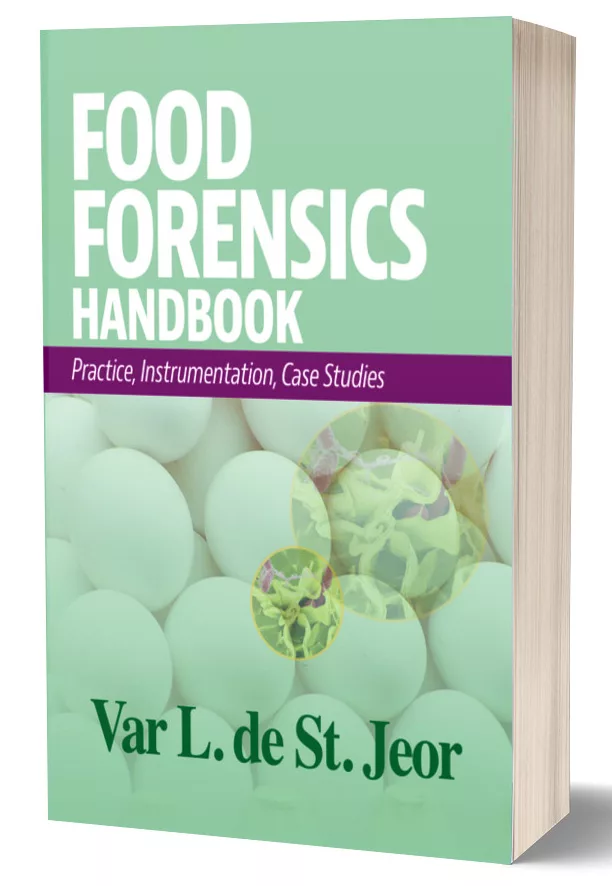St. Clair Foods: A Healthy Obsession with Sanitation
It was 1976—the year of the U.S. Bicentennial—and Oscar Edmonds was declaring his own independence. In the midst of an economic recession, with a young son just born, Edmonds, in need of a job, searched high and low for an opportunity—any opportunity. When a small salad dressing company owner put a plant in Memphis, TN up for sale, Edmonds had found his moment. He bought the plant, a move that—accidentally—launched his nearly obsessive quest for food safety.
“For my first capital investment I bought a product transfer pump. I was really proud of it and I thought we were doing everything right,” says Edmonds. “But after about a while I noticed that product was leaking out of the back. As I realized that something was wrong, and might have been going wrong for a while, my stomach dropped to the floor.”
No one had told Edmonds that an area behind a cylinder had to be cleaned—and it had not been for weeks. It was a seminal moment for Edmonds.
“It was at that point that I ‘got it,’” says Edmonds. “We took apart that machine and cleaned every nook and cranny. Then we came back in and did it again the next morning.” From that point on, mandatory post-op and pre-op cleanings of all machinery became a requirement at St. Clair—long before any agency or association recommended it. “I became focused on the reality that in food processing there is no margin for error,” he added.
Three decades later, this commitment to safety remains a core company value. St. Clair Foods has grown to include more than 160 employees who manufacture, store and ship four distinct lines of products. These include the original line of salad dressings, processed produce, wet salads (such as cole slaw, potato salad and pasta salad) and cooked products (such as chili, marinara sauce, pan side dishes and a new line of Mexican-style cheese dips.)
Partnership is Paramount
St. Clair serves both regional customers such as Schnuck’s Supermarkets and McAlister’s Deli, and national companies including Sysco Foods. In addition, they package customized and proprietary items for other customers.
Iris Holloway, vice president of procurement and distribution for McAlister’s Deli (with more than 200 stores in 18 states), values St. Clair’s commitment to both sanitation and customer service. “The two go hand-in-hand. We’ve been a St. Clair customer for more than nine years, and we have toured the plant many times. Not only does St. Clair take every step possible to assure product safety, they work with us to bring new products to market—and that takes a commitment to constant growth and upgrading.”
Two years ago a McAlister’s chef originated an orange-cranberry sauce recipe that according to Holloway was “pretty good.” Holloway took the recipe to her St. Clair’s rep, David Parkinson, who shepherded it through development. By the time the final recipe was completed, the sauce was terrific.
“The key to a great relationship is trust. When we told St. Clair how much we wanted to order—it was a huge order—they worried for us. But they trusted we knew the market, and we trusted they would package this great sauce in large quantities.”
In the end, McAlister’s sold three times as much sauce as they anticipated during the first year, and the product has become a staple on an entire line of sandwiches.
“St. Clair made our vision real – they were interested in growing with us, they stay on the cutting edge of modernization, their sanitation is impeccable and they want what is best for us. It is a great partnership,” Holloway adds.
An Award-Winning Production
The idea that safety should be so ingrained in every member of the St. Clair team has resulted in some interesting by-products. For instance, the first two employees at the plant are still with the company, and more than half the staff has been at the plant for more than five years. Edmonds believes that the dedication of his employees to the company and the concept of complete food safer have allowed St. Clair’s revenues to grow 12-15% each year for the last 15 years.
And, for the second consecutive year (during its first two years with the program), St. Clair has been the recipient of the Silliker Audit Platinum Award. The award is presented annually to 10 food processors and 10 food distribution centers that receive the highest scores in Silliker Good Manufacturing Practice (GMP) audits, intense one-to-two day rigorous reviews of every process, program and piece of equipment in the plant or facility. “Government oversight requires that every manufacturer reach a certain level of quality within their plants in order to protect the public health, but a handful of top tier companies make food safety such an intrinsic part of their culture that they far exceed the pack,” says Frank Herring, the Silliker auditor who conducted St. Clair’s 2005 audit.
“St. Clair’s attention to detail—from the inspection of inbound ingredients to the packaging of the company’s four lines of products to the documentation of every aspect of the plant—is what makes them a natural winner. They don’t do this for the award, they do it for their customers,” he adds.
Edmonds says his commitment is borne of fear—St. Clair’s sanitation must be 100% accurate, as the public’s safety is in his hands.
His son, Brian, today serves as the company’s vice president of operations. He and his sister, Lauren, who Oscar says “has a gift for product development” learned about their dad’s commitment from the time they visited the plant as children. “My dad laid the foundation for our company’s commitment to food safety,” explains Brian Edmonds. “Our job now is to reinforce that approach in everything we do.”
Teaching Intuition
“Food safety has to be taught until it is second nature,” says Brandi Haynes, Director of Quality Control (QC) at St. Clair. “It’s my job to make sure that everyone, in every job, understands the impact he or she has in 100% security.”
With a master’s degree in food microbiology from Auburn University and 10 years’ experience wielding a microscope (the last six at St. Clair), Haynes is responsible for all aspects of QC at the company. “People sometimes ask me how many people report to me and I usually say ‘160’ because with QC, everyone in the building must be on board,” she says.
Her approach is to engage everyone in the process. “There is no doubt that the core elements of food safety are based on repeated actions and that can be very tedious. The burn-out rate can be very high, so good training and delegation of responsibilities are key elements of keeping a strong team.”
For instance, Haynes oversees a monthly competition that involves self-auditing every production line in the building. Her team stringently reviews each line’s pass rate figures from morning sanitation and from random swabbing—checking for bacteria rates—during the day. In order to win you have to have no “fails” at the close of the month. Figures are posted in the plant for all to see.
Haynes’ QC team, which includes two QC assistants, also holds regular mock recalls. The team randomly picks a product and sets out to determine, as quickly as possible, where all cases of finished products went and determine who were the customers and their key contacts. All paper records are located and all bases are covered. The team does the same for ingredients, making sure all steps are accounted for.
The team can generally account for all finished product in an astounding 30 to 60 minutes; raw ingredients take a little longer at one to three hours.
To promote food safety and sanitation, competitors often tour St. Clair’s facility as an educational opportunity. The tours are in conjunction with the Refrigerated Food Association (RFA), a professional leadership group that Oscar Edmonds helped to found in 1980.

“At the time (that the RFA was established) there were about a dozen companies that basically realized that there was a need for some group knowledge about sanitation in order to provide our customers and the general public with the safest products possible,” says Oscar Edmonds.
Part of the mission of the RFA is education, an area that really appeals to Brian Edmonds. “You don’t want to gain business because of a competitor’s food safety problems. When one company has a public food safety issue it undermines the confidence of the consumer and calls the whole industry into question—and that is good for no one,” he notes. “You want the competitive differences to be realized in your product quality—your recipes and ingredients, not on sanitation.”
His dad adds, “We bring customers in and educate them about our QC and sanitation practices to show our commitment to their customers well-being. They have seen other plants, they know what to compar—and they know we are one hundred percent committed to keeping the plant completely clean and sanitized. They see this as not value-added but as a reflection of our overall philosophy.”

RFA Executive Director Terry Dougherty notes that St. Clair was really the first company in the region to throw open its doors to competitors. “St. Clair has an amazing track record of safety, and that is a real sales advantage,” says Dougherty. “The company’s culture is that safety is not a sales point, it is a responsibility, and the more it can share with other companies, the better it will be for the industry. They are one of our leaders in the sharing of safety information, and I can tell you that St. Clair is extremely open about their safety processes. Their openness is priceless.”
Adds Oscar Edmonds, “There is no reason not to be good at QC and sanitation. Yes, the equipment costs money but the real investment must be in people. Teach them, reinforce the messages and celebrate their successes. That is what it is all about.”
Robbie Tarpley Raffish is a freelance writer and special contributor to Food Safety Magazine. >
Looking for quick answers on food safety topics?
Try Ask FSM, our new smart AI search tool.
Ask FSM →








